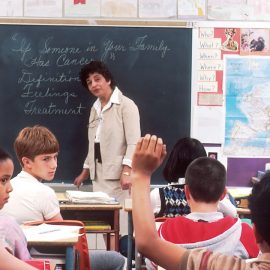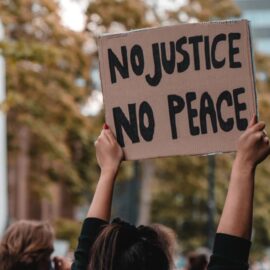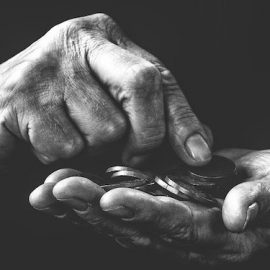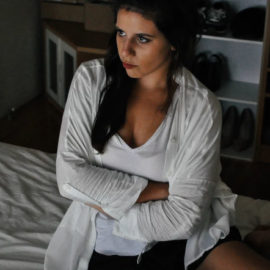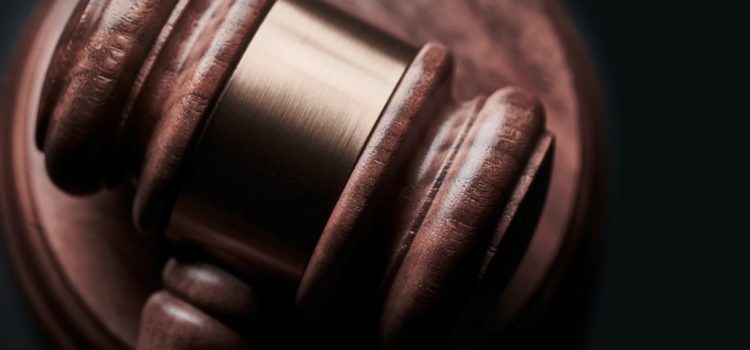

This article is an excerpt from the Shortform book guide to "Behind The Beautiful Forevers" by Katherine Boo. Shortform has the world's best summaries and analyses of books you should be reading.
Like this article? Sign up for a free trial here .
Why is Abdul in legal limbo in the book Behind the Beautiful Forevers? How did Abdul get out of jail?
Abdul got out of jail after a judge ruled that he was not a flight risk and could live at home until his trial. Abdul waited for months and never got any clarity on when his trial would begin. He has been condemned to the legal limbo of awaiting trial forever.
Read on to discover why Abdul is stuck in legal limbo.
Kehkashan, Abdul, and Karam in Jail
Kehkashan was sent to a women’s jail, Karam to the Arthur Road jail, and Abdul to a juvenile detention facility. In India, those who couldn’t pay for jail bonds could be held for years before facing trial. Zehrunisa had trouble providing collateral to pay for jail bonds to get her three family members out. Most of the things of value her husband owned were in his name only. She sold the back room of their hut, and she considered selling more, like the garbage storeroom. Zehrunisa also visited numerous relatives in the city to ask for money for bail, but few were willing to support her. She even tried approaching the family of a woman she hoped would be Abdul’s fiancée, but they were also unsympathetic, and the marriage would likely be called off due to the accusations against Abdul.
At first, Abdul was to be sent to the same adult jail as his father, but Zehrunisa paid a bribe to a local school to falsify a school record for Abdul, showing that he was 16. She didn’t know his age because families that were struggling to survive didn’t often have those records.
In Abdul’s juvenile jail, most of the kids were Muslim. Muslims were generally overrepresented in India’s criminal detention system. Conditions at the jail were poor. The kids got to exercise for an hour in the morning and were supposed to receive educational instruction the rest of the day, but instead were usually sent back to their cells.
One day, however, a teacher gave a special presentation. He talked about how some of the children in the jail had done bad things and would continue on this negative path their whole lives. But he presented an alternative: If the boys chose to walk a more virtuous path and reform themselves, they would have better lives, and justice would come to them in time.
Prior to this speech, Abdul wanted desperately to confess to hurting Fatima, even though he was innocent, because most of the boys at the jail thought that confessing to a crime would allow you to go home. But upon hearing this teacher’s presentation, he resolved to take a virtuous path and not relent, which meant sticking to the truth even if he couldn’t get out of jail sooner and his family’s finances suffered while he couldn’t work.
Abdul’s Release
A judge ruled that Abdul wasn’t a flight risk and could live at home until his trial as long as he promised to check in with the jail three days per week.
Zehrunisa filled in Abdul on her struggle to raise money to get them out of jail. Karam, Abdul’s father, was not allowed medicine for his tuberculosis in the prison, and his health was failing. Kehkashan, Abdul’s sister, seemed to be in good spirits because her jail had relatively good conditions. Zehrunisa didn’t know when any of their trials would be, but she’d now secured a lawyer to argue their case.
She also told Abdul that his trash business had collapsed in his absence. His brother Mirchi had tried to run the business, but most of the scavengers ended up selling their goods to another trash collector instead. Abdul decided to restart his business, but he felt determined to walk a virtuous path as he’d learned at the jail. This meant not buying stolen materials from the scavengers and being okay with the income he’d earn from running his business three fewer days per week to meet the jail’s check-in requirement.
Abdul’s Legal Limbo
While Abdul was in juvenile jail, Zehrunisa had sold his garbage shed to help cover the family’s expenses. Since his release, Abdul had rented a hut in a different part of town to run his business. But he struggled to make money there because the trash pickers in that area already had preferred buyers. He decided to give up this hut, and he drove his family’s van around the state offering to transport recyclables to the appropriate facilities for a fee.
He still had to check in at the jail three days per week to prove he hadn’t fled. Traveling to the jail required taking a whole day, so he only worked four days per week and couldn’t earn as much income as he used to.
Zehrunisa tried to get some clarity on when he would stand trial. When she inquired at the juvenile court about the case, she was told the trial would begin within one to three months. After 15 months went by, Zehrunisa and Abdul were convinced that he was being condemned to the legal limbo of awaiting trial forever.
Despite Abdul’s inability to work a full schedule, his family hoped they would qualify for one of the apartments that would be provided to slum dwellers as part of the razing plans. Additionally, his other siblings were helping support the household by working temporary jobs.
After the special visit from the teacher to the boys’ prison, Abdul had resolved to live a more virtuous life. If most people were like water, he wanted to be like ice—made of the same substance, but elevated above others by how he lived. But as Abdul’s legal limbo dragged on, and his trial wasn’t scheduled, he became more disillusioned. He told Allah that being in legal limbo was making the ice inside him to melt, and he was becoming water, just like everyone else because of how the world worked: No matter how much he tried to do the right thing and get ahead, he couldn’t.
The Fate of the Husain Family
While Abdul was stuck in legal limbo, Karam and Kehkashan’s case was put on a fast track—their trial began after spending months in jail rather than years. If convicted, they faced 10 years in prison. Abdul would face a separate trial with separate charges.
Though the fast-track system shortened the time spent waiting for trial, judges often heard dozens of trials at the same time, holding short hearings for each case each week. So the trials themselves still took months to finish.
Karam hoped for exoneration. However, he was concerned that the prosecution was planning to call witnesses who hadn’t observed Fatima’s burning or the words Karam and Kehkeshan said to Fatima.
The first few witnesses troubled them. Someone who worked in the morgue of the hospital where Fatima was treated testified that she’d been burned over 95 percent of her body, as was stated on the falsified medical records. At the next hearing, a police officer said that the Husains’ maltreatment led Fatima to suicide.
Meanwhile, outside of the courthouse one day, the government official who had taken Fatima’s statement at the hospital tried to pressure Karam into paying her off, saying that the case wouldn’t go in the Husains’ favor if she didn’t. She said witnesses might embellish details of the fight between the Husains and Fatima, and she herself might do the same to Fatima’s account if she were called to the stand. She said that Karam, Kehkashan, and Abdul would end up in jail. But Karam pointed out that they had already been in jail while awaiting the trial. He said their lawyer would help the judge see their side and refused to pay, opting to let the justice system run its course.
The witnesses the following week offered some hope that the trial would work out in their favor. One of the witnesses was a girl who lived in Annawadi and testified that she hadn’t actually witnessed the fight. She also said Fatima had been known in Annawadi for starting fights. Another witness testified that he was angry at the police for calling him as a witness to the case. Though the police had recorded his statement after Fatima’s burning, he too hadn’t actually witnessed the fight or the incident and was unhappy at having to miss work to testify.
Fatima’s husband hoped that the Husains would be found guilty of the charges against them. When Fatima passed away, he’d had to give up his two young girls to a local orphanage because he couldn’t risk leaving them at home during the day while he worked—young girls left alone were vulnerable to sexual assault from strangers. He felt that, indirectly, the Husains had stolen his chance to provide a stable life for his daughters.
When Fatima’s husband testified, he embellished the account of Fatima’s fight with the Husains, saying that in addition to calling her names, they had beaten her with a stone. He hoped this would lend evidence to convict the Husains.
Then, several additional factors made the Husains unsure they’d prevail:
- The weather grew warmer and the windows of the courtroom were opened during the hearings. Kehkashan and Karam were seated so far away from the proceedings that the traffic noise from the street made it impossible to hear what was being said.
- Around the same time, the judge grew impatient with the slowness of the stenographer. The stenographer was supposed to be recording the court proceedings in English, but they were having to translate the proceedings from Marathi. To save time, the judge started dictating to the stenographer, which led to odd or contradictory notes. For example, Cynthia—Fatima’s friend whose trash picking business had failed when the Husains’ started picking up—had said in a statement that she’d seen the fight when she’d actually been home preparing dinner. When the defense lawyer brought her lie to light, the court stenographer wrote down that she had lied and seen the fight.
- The Husains learned that a new judge would preside over the case and would have to use the barebones transcript to catch up on the proceedings.
The government official who took Fatima’s statement in the hospital tried for a third time to convince the Husains they should pay her to help resolve the case. This time, she said Fatima’s husband was willing to drop the case in exchange for about $4,000. However, because the case was being brought by the state, it couldn’t be called off for any amount of money. She hoped the Husains wouldn’t realize this, but they saw through her scheme and refused once again to pay her off.
Kehkashan and Karam began their new trial with the new judge, who liked to crack jokes and didn’t seem to take the proceedings very seriously. During closing arguments, the judge looked at Kehkashan and quipped that he didn’t even know for sure who he was looking at because she was wearing a burqa, despite her having done so every day in court. Finally, after months of trial, the judge said they were ready to issue the verdict, but first, they’d take a 90-minute break.
After the break, but before the verdict was read, Kehkashan and Karam were put on the witness stand for the first time. The only question they were asked was what their occupations were. Kehkashan said she was a housewife because she didn’t want to go into detail about her recent separation from her husband. Karam said he worked in plastics because he thought this sounded more reputable than working with garbage. The judge told Karam that Fatima was dead because of him, but Karam replied adamantly that she had burned herself. The judge found them not guilty of the crime, saying that they hadn’t driven Fatima to suicide.

———End of Preview———
Like what you just read? Read the rest of the world's best book summary and analysis of Katherine Boo's "Behind The Beautiful Forevers" at Shortform .
Here's what you'll find in our full Behind The Beautiful Forevers summary :
- A nonfiction account of the lives of residents of in one Mumbai slum
- How the globalized world affects many people in India
- A story of poverty, exploitation, and the struggle to survive

